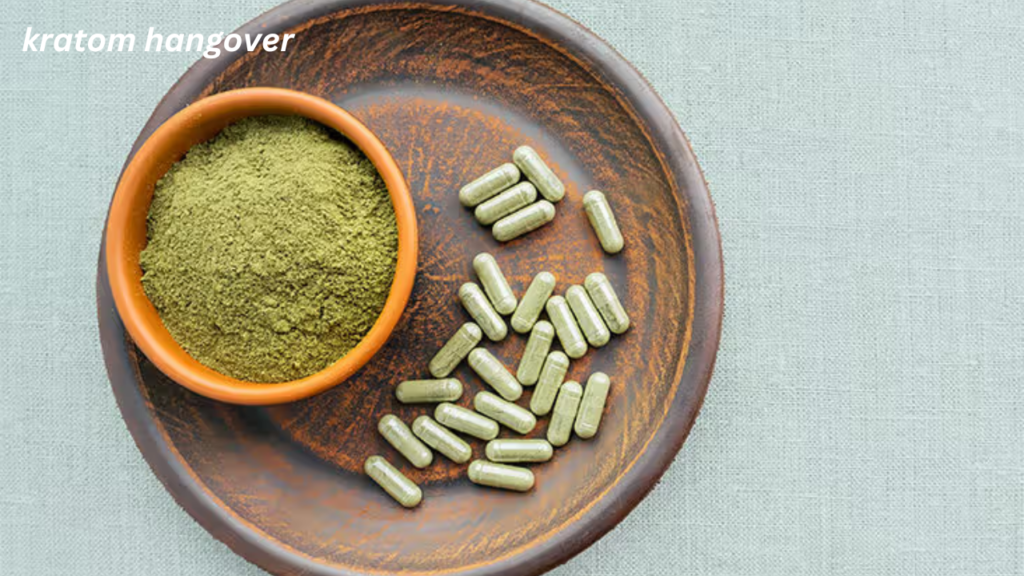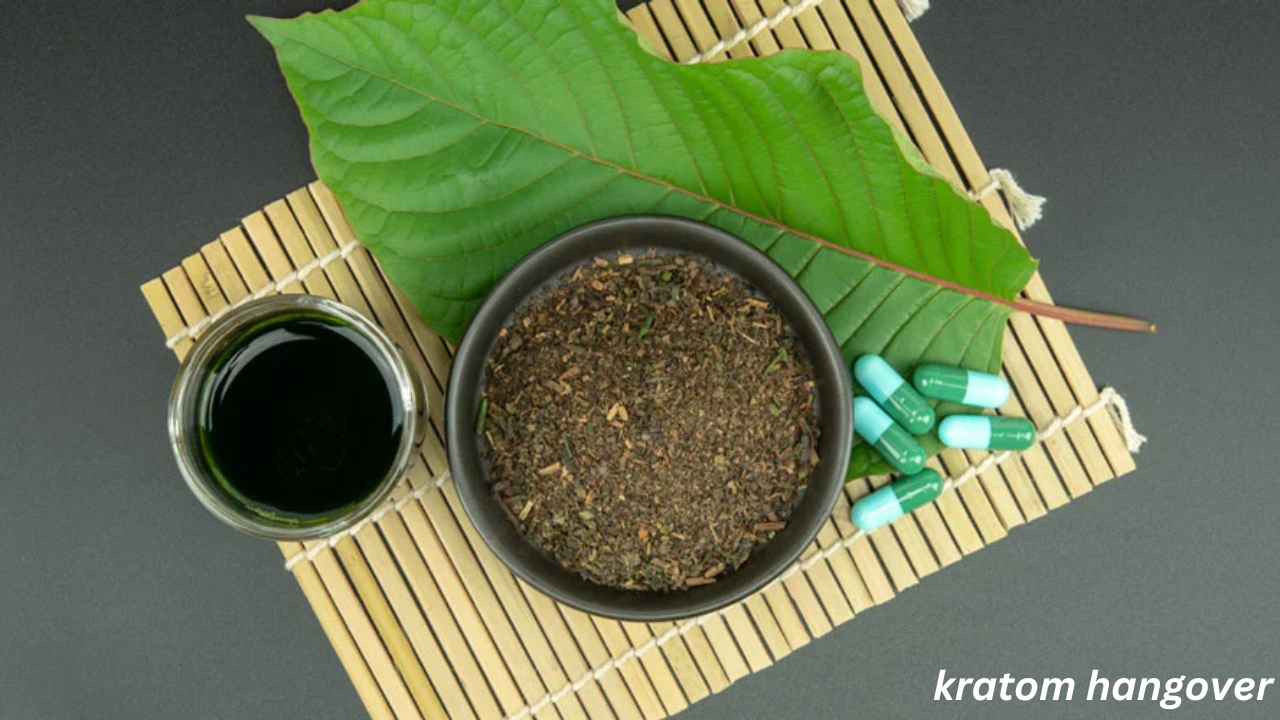Hangovers are a common consequence of consuming substances that alter the body’s chemistry, leading to various symptoms such as headaches, nausea, fatigue, and dehydration. While alcohol-induced hangovers are widely recognized, some users of kratom have also reported experiencing hangover-like symptoms after consumption. However, the effects, causes, and recovery methods for kratom hangover differ significantly from those of alcohol hangovers. In this article, we will explore the key differences between a kratom hangover and an alcohol hangover, including their symptoms, causes, duration, and the best ways to prevent and treat them.
What Is a Kratom Hangover?
A kratom hangover refers to the aftereffects experienced by some users following the consumption of kratom, particularly in high doses. Kratom (Mitragyna speciosa) is a plant native to Southeast Asia that is commonly used for its stimulating, pain-relieving, and mood-enhancing effects. However, excessive or improper use of kratom may lead to lingering effects the next day, often described as a “hangover.”
Symptoms of a Kratom Hangover

- Brain fog and difficulty concentrating
- Mild to moderate headaches
- Nausea and dizziness
- Fatigue and drowsiness
- Mild dehydration
- Irritability or mood swings
Causes of a Kratom Hangover
- High dosage: Taking excessive amounts of kratom can lead to prolonged effects and next-day discomfort.
- Dehydration: Kratom can have mild diuretic effects, leading to fluid loss.
- Low-quality or contaminated kratom: Some kratom products may contain impurities that contribute to negative aftereffects.
- Mixing strains improperly: Certain kratom strains may interact in ways that increase the likelihood of hangover symptoms.
- Body chemistry: Individual tolerance levels and metabolism affect how kratom is processed.
What Is an Alcohol Hangover?
An alcohol hangover occurs after excessive alcohol consumption and is the result of dehydration, toxic byproducts, and imbalances in neurotransmitter activity. Alcohol is a central nervous system depressant, and its breakdown in the liver produces acetaldehyde, a poisonous substance that contributes to hangover symptoms.
Symptoms of an Alcohol Hangover
- Severe headaches and migraines
- Nausea and vomiting
- Sensitivity to light and sound
- Extreme fatigue and weakness
- Dehydration and dry mouth
- Muscle aches and body pain
- Anxiety and restlessness
Causes of an Alcohol Hangover
- Dehydration: Alcohol is a diuretic, causing excessive urination and fluid loss.
- Acetaldehyde buildup: This toxic byproduct of alcohol metabolism contributes to nausea and headaches.
- Electrolyte imbalance: Excessive alcohol consumption depletes essential minerals such as potassium and magnesium.
- Disruption of sleep: Alcohol interferes with sleep cycles, leading to exhaustion the next day.
- Congeners: These compounds, found in darker alcoholic beverages like whiskey and red wine, intensify hangover symptoms.
Key Differences Between Kratom and Alcohol Hangovers
Severity of Symptoms
- Alcohol hangovers tend to be significantly more severe than kratom hangovers, often leading to intense nausea, vomiting, and extreme headaches.
- Kratom hangovers are generally mild, with symptoms such as brain fog and drowsiness being the most commonly reported issues.
Dehydration Levels
- Alcohol is a strong diuretic, leading to severe dehydration and electrolyte imbalances.
- Kratom can cause mild dehydration but not to the same extent as alcohol.
Toxicity and Body Impact
- Alcohol produces toxic byproducts that stress the liver and contribute to long-term damage if consumed excessively.
- Kratom does not produce harmful metabolic byproducts in the same way, though excessive use may cause digestive discomfort and dizziness.
Duration of Hangover Effects
- Alcohol hangovers can last from 12 to 24 hours, with some severe cases extending beyond a whole day.
- Kratom hangovers are usually shorter-lived, lasting a few hours up to half a day.
Treatment and Recovery
- Alcohol hangovers require hydration, electrolyte replenishment, and rest.
- Kratom hangovers can often be alleviated with hydration, healthy food, and moderate physical activity.
How to Prevent and Treat Kratom and Alcohol Hangovers
Preventing a Kratom Hangover
- Stick to moderate doses of kratom.
- Stay hydrated before, during, and after use.
- Choose high-quality, lab-tested kratom products.
- Avoid taking kratom on an empty stomach.
Treating a Kratom Hangover
- Drink plenty of water or herbal teas.
- Eat a nutritious meal with protein and healthy fats.
- Take a break from kratom for a day or two to reset your tolerance.
- Engage in light exercise or stretching to boost circulation.
Preventing an Alcohol Hangover
- Drink in moderation and pace yourself.
- Consume alcohol with food to slow absorption.
- Choose clear liquors like vodka and gin over darker drinks with congeners.
- Alternate alcoholic drinks with water.
Treating an Alcohol Hangover
- Rehydrate with water and electrolyte-rich drinks.
- Get plenty of rest and sleep.
- Take over-the-counter pain relievers if needed.
- Eat a balanced meal with carbohydrates, protein, and healthy fats.
Conclusion
While both kratom and alcohol can lead to hangover-like symptoms, alcohol hangovers are typically much more severe due to dehydration, toxicity, and neurotransmitter imbalances. Kratom hangovers, on the other hand, are usually mild and manageable, often resulting from excessive consumption or low-quality products. Practicing moderation, staying hydrated, and choosing high-quality substances can significantly reduce the chances of experiencing a hangover from either kratom or alcohol.
FAQs
Can kratom and alcohol be mixed?
It is not recommended to mix kratom and alcohol, as both affect the central nervous system differently and may increase the risk of nausea, dizziness, and dehydration.
Why do some people experience kratom hangovers while others don’t?
Individual tolerance, dosage, hydration levels, and overall body chemistry play a role in whether someone experiences a kratom hangover.
Are there specific kratom strains that are more likely to cause hangovers?
Some users report that red vein kratom strains, which are more sedating, may increase the likelihood of experiencing next-day grogginess.
What is the best way to avoid an alcohol hangover?
Drinking in moderation, staying hydrated, eating before consuming alcohol, and choosing clear liquors can help prevent severe hangovers.
How long does a kratom hangover last compared to an alcohol hangover?
Kratom hangovers are generally mild and last only a few hours, while alcohol hangovers can persist for up to 24 hours or more, depending on the severity of consumption.
You May Also Read: https://ventsworlds.com/caremes/

